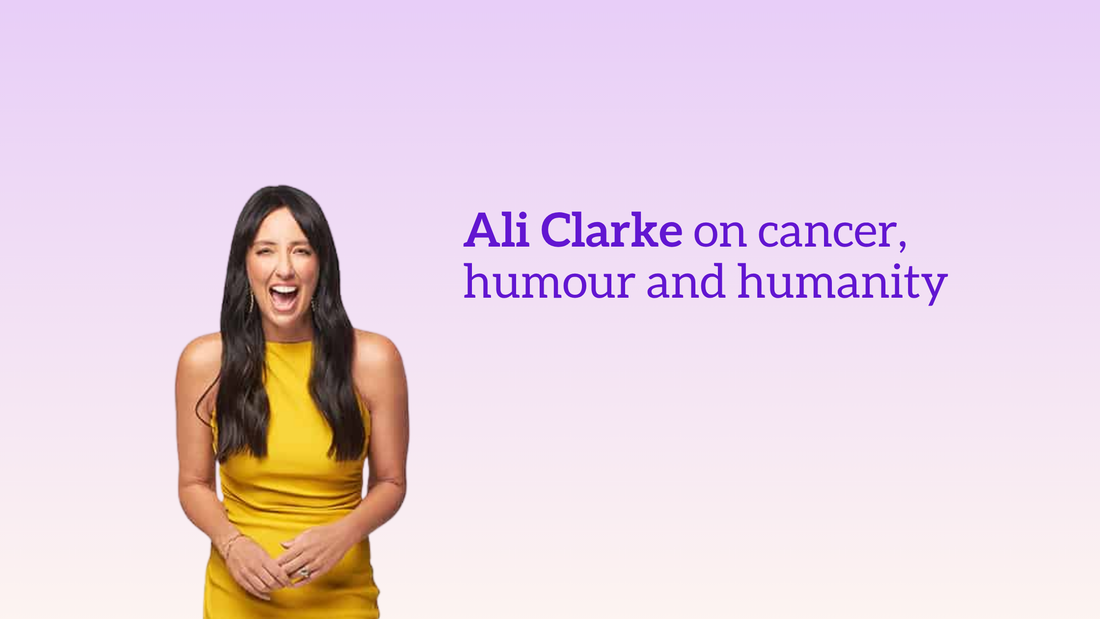“Just because we get sick doesn’t mean that we stop being human.”
These words from Ali Clarke cut right to the heart of why we wanted to create this series. We spoke with Ali about her experience with cancer, and she brought her trademark mix of humour and honesty… bringing humanity back into conversations that can often feel too heavy, clinical, or awkward.
This collaboration isn’t just about sharing stories. It’s about changing the way we support people through cancer… with honesty, humour and heart. At the end of the day, none of us are defined only by illness. We’re still people… parents, friends, colleagues, partners. And sometimes what really makes a difference is a casserole on the doorstep, a laugh at the wrong moment, or someone simply saying: “I don’t know what to say, but I’m here.”
That’s the spirit of this chat: real talk, a few chuckles, and some lessons we can all carry into the way we show up for others.
When you were first diagnosed, what surprised you most about the way people responded?
Ali:
Honestly? The amount of casseroles. I didn’t know cancer triggered a national bake-off...
But the real surprise was how many people showed up and shared their stories. In fact, they still do it — quietly, consistently, and without needing to be asked. That kind of love sneaks up on you and it is not lost on me that I was privileged to have the opportunity to tell my story, so I was given a lot more support in return.
What were the most helpful things people said or did for you? What were the gestures or words that really made a difference?
Ali:
The most helpful things were the ones that made me feel seen — not as a patient, but as a person.
When someone said, “I don’t know what to say, but I’m here,” it gave me permission to feel whatever I was feeling. Even just the odd text out of the blue was a life raft at times.
I think also, making that consistent is pretty important. Plenty of people get busy with life — and that’s completely understandable! — but cancer can be a long, shitty process.
On the flip side, were there responses or behaviours that felt unhelpful or missed the mark?
Ali:
There were moments when people tried to find silver linings too quickly.
“Everything happens for a reason.”
“At least it’s not worse.”
Those words might be well-intentioned, but they can feel dismissive.
Sometimes, what you need most is for someone to acknowledge that it’s hard. That it’s unfair. That it sucks.
And then there were the silences — the people who disappeared. I understand it, but it still stings. Because when you’re going through something like this, you don’t need perfect words. You just need people.
How did humour play a role in helping you navigate your diagnosis, and what do you wish more people understood about supporting someone with cancer?
Ali:
I always retreat into humour — that’s just who I am.
Humour gave me breathing room. It didn’t erase the fear or the grief, but it helped me carry it. It reminded me that I was still me — still capable of joy, of sarcasm, of laughing at the absurdity of it all.
I reckon there’s something deeply human about being able to laugh in the middle of pain. It doesn’t mean you’re not hurting. It means you’re still having a red hot go at living.
Why we created the Breast Intentions Collection with Ali Clarke
We believe that humour has a place in every part of life, and Ali reminded us of that more than ever. Together, we created the Breast Intentions collection: cards designed to spark connection in the moments where words can feel hard to find.
These cards capture the essence of what Ali has shared — that humour and humanity can sit side by side, even when life is at its hardest. Ali shows us that laughter can cut through fear, lighten heavy moments, and remind us we’re still ourselves. Her reminder is simple but powerful: illness doesn’t cancel out humanity. The way we show up matters, whether it’s with food, a text, or a cheeky card that sparks a smile.
View the Breast Intentions card collection

